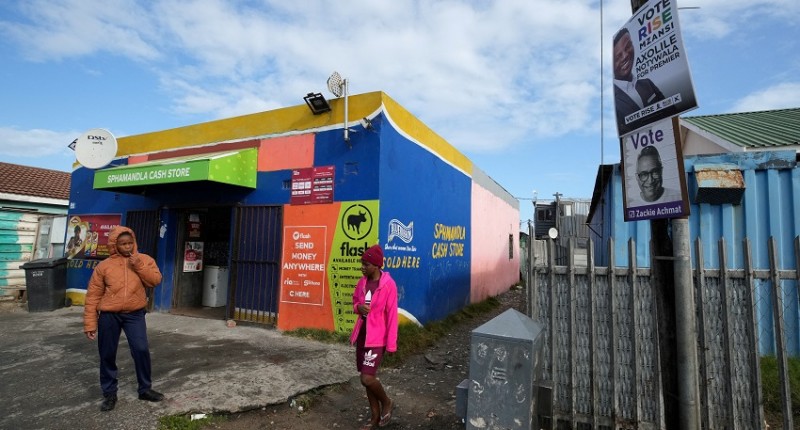
Pretoria: Provisional results from South Africa's latest election indicate that the ruling African National Congress (ANC) is leading with 41.8% of the vote. As of 2 p.m. CET on Friday, about 66% of the votes had been counted and verified. Final results are expected over the weekend. The election took place on May 29, with polling stations closing at 9 p.m. local time.
While these are only partial results, analysts predict that the ANC may lose its majority in parliament for the first time in 30 years, potentially forcing it to form a coalition with other parties. Political analyst Sandile Swana suggested that the ANC is likely to end up with around 42% of the vote, a significant drop from the 57.5% it secured in the 2019 election.
Following the ANC, the Democratic Alliance (DA) is in second place with approximately 23% of the votes. Former President Jacob Zuma's new party, uMkhonto weSizwe (MK), has performed unexpectedly well, garnering around 11% of the vote and placing third.
Coalition Speculation
If the ANC fails to achieve the 50.1% needed to govern alone, it will have to form a coalition. Various potential coalition scenarios are being discussed, though parties remain tight-lipped about possible alliances. Despite many parties vowing not to ally with the ANC, Swana noted that all options remain on the table.
"Some hardened ANC members might advocate for recruiting smaller parties," Swana said. "Alternatively, the ANC could form a grand coalition with the Democratic Alliance, though this would have significant political repercussions."
Another potential path is forming a left-wing coalition, which might include MK, the Economic Freedom Fighters (EFF), the United Democratic Movement (UDM), and other left-leaning parties, including the ANC.
Success for Jacob Zuma’s MK
MK Secretary General Sihle Ngubane expressed satisfaction with her party’s performance. "It feels very good," Ngubane told DW. "We campaigned hard, telling people the truth about MK and the current government."
Vote Counting and Verification
Votes are counted and verified at polling stations nationwide, with party agents and observers present. Results are publicly displayed before being sent to the National Results Centre in Midrand, Gauteng province. There, they are compiled and audited by independent auditors before being announced by South Africa's Independent Election Committee (IEC).
IEC Communications Deputy Manager David Mandaha anticipates that final results could be announced sooner than the initially planned seven days, possibly by the weekend.
Election Day Challenges
Election day encountered several issues, including malfunctioning voting devices and power outages at some polling stations. Long wait times were reported, particularly in Johannesburg and Durban. Despite polls officially closing at 9 p.m., many voters remained in line, with some stations staying open later to accommodate them. University of Johannesburg student Charmain Shabalala, who waited in line for hours, expressed a desire for change in South Africa.
Despite these challenges, external election observers have praised the election process. Former Nigerian President Goodluck Jonathan, who led the Electoral Institute for Sustainable Democracy in Africa's observation mission, commended South Africa's electoral commission: "I trust the electoral commission of South Africa. It's one of the best in Africa. They are doing very well, though there are areas for improvement."
South Africa Elections 2024: All About Key Information on These Pivotal Polls
South Africa Election 2024: ANC Faces Challenges as First Results Announced
Biden Permits Limited Use of US Arms for Ukrainian Strikes Inside Russia, Say Officials